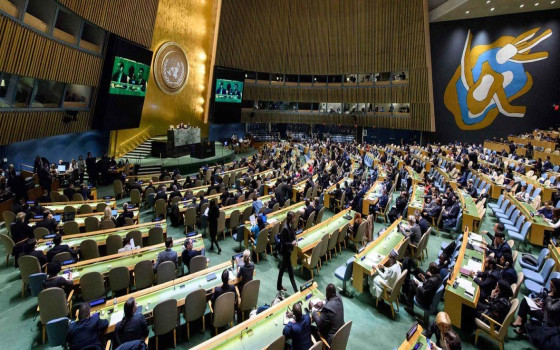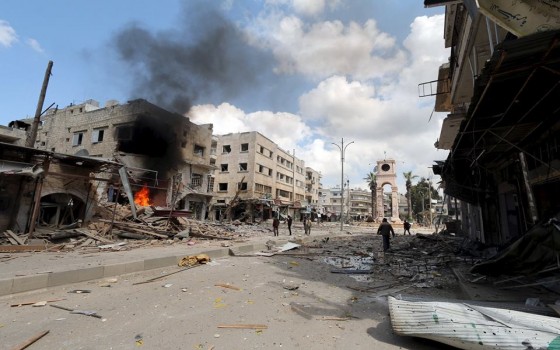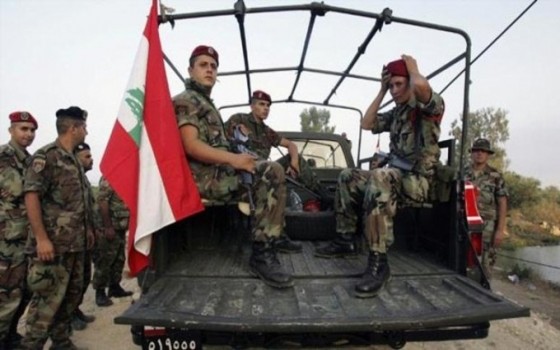
UN Security Council: 70% of those killed in Gaza are women and children, and life there is not fit for humans

- Europe and Arabs
- Wednesday , 13 November 2024 9:57 AM GMT
Gaza - New York: Europe and the Arabs
The UN Security Council held a meeting on the protection of civilians during armed conflicts, during which it discussed the situation in Gaza. The Council listened to a briefing from officials from the UN Office for Human Rights, the Food and Agriculture Organization (FAO), and the UN Office for the Coordination of Humanitarian Affairs. According to the UN daily news bulletin, a copy of which we received this morning, Wednesday,
Ilze Brands Kehris, Assistant Secretary-General for Human Rights, began her briefing by saying that the humanitarian and human rights conditions of Palestinian civilians throughout Gaza are catastrophic.
She pointed out that the figures documented by the UN Office for Human Rights indicate that nearly 70% of those killed in Gaza are women and children. She said that, according to the Palestinian Ministry of Health, at least 43,000 people have been killed since the horrific attacks launched by Hamas and other Palestinian armed groups on Israel on October 7, 2023. It is likely that many of the dead and wounded are still under the rubble.
She noted that nearly 1.9 million people have been displaced, many of them multiple times, including pregnant women, people with disabilities, the elderly and children. She said that Israeli airstrikes on shelters and residential buildings are killing an unacceptable number of civilians, demonstrating that there is no safe place in Gaza.
“Monitoring by our Office indicates that this unprecedented level of civilian deaths and injuries is a direct result of the parties’ choice of methods and means of warfare and their failure to comply with the basic principles of international humanitarian law,” the Assistant Secretary-General for Human Rights said.
On the situation in northern Gaza, the UN official referred to the latest Integrated Food Security Phase Classification report, which warned of the strong possibility of imminent famine. She said that the Human Rights Office had documented how severe restrictions imposed by Israel on the entry and distribution of goods and services essential to the survival of civilians – by April – had created risks of famine and starvation in Gaza.
“We reiterate that the use of starvation of the civilian population as a method of warfare is strictly prohibited under international law,” she said. In her briefing to the Security Council members, she said that the manner in which the Israeli military was carrying out its operations in northern Gaza indicated that “Israel’s actions not only sought to empty northern Gaza of Palestinians by displacing the remaining survivors to the south, but also pointed to a serious risk of committing atrocities of the most severe kind.” She stressed that Palestinian armed groups must also comply with international humanitarian law, including refraining from co-locating military objectives with civilians and civilian infrastructure, and must take all feasible precautions to protect the civilian population under their control from the effects of attacks.
“However, the failure of Palestinian armed groups to comply with international humanitarian law does not negate or diminish the obligations of the Israeli forces to comply,” she said.
Ilzi Brands-Keres said that all states must, in accordance with their obligations under international law, assess their sale and transfer of arms and their military, logistical and financial support to a party to the conflict with a view to ending such support if it risks serious violations of international law. She again referred to the call by the Integrated Food Security Phase Classification (IPC) Famine Review Committee to “act within days, not weeks” to prevent or mitigate the catastrophic situation in northern Gaza. The UN official called on the Security Council to take all steps within its authority under the UN Charter to influence the parties to end violations, facilitate impartial humanitarian access and protect civilians. Ryan Paulson, Director of the Office of Emergencies and Resilience at the Food and Agriculture Organization (FAO), told the Security Council that nearly 133,000 people face catastrophic food insecurity. He referred to the Famine Review Committee’s warning that there is a high probability that famine is occurring or imminent in areas of northern Gaza.
“Men, women, boys and girls are literally starving as the conflict rages on, and humanitarian organizations are being prevented from delivering assistance to those in need,” he said.
He added that agricultural food systems in Gaza have collapsed and local food production has been destroyed. He said geospatial analyses indicate that nearly 70% of cropland – which contributed a third of domestic consumption – has been destroyed or damaged since the escalation of hostilities began last year.
Likewise, livestock production has been severely affected, with nearly 95% of livestock and more than half of sheep and goat herds dead.
He noted that Gaza – prior to 7 October 2023 – was largely self-sufficient in its own vegetables, eggs, milk, poultry and fish. He said the local agricultural sector also produced much of the red meat and fruit that was consumed within the Strip.
He said that local production of these foods had made the nutritional outcomes of Gaza’s children similar to those of their peers in middle-income countries, despite high levels of food insecurity. He said that the widespread destruction of agri-food systems was exacerbating the humanitarian crisis and hunger and increasing the risk of famine.
He stressed that there was still time to save lives, which he said was a humanitarian imperative and a moral responsibility. “By the time famine is declared, people will have already died of hunger, with irreversible consequences lasting for generations. The opportunity to provide this assistance is now, today, not tomorrow,” he said. He renewed the call for urgent diplomatic efforts to address conflict-related food insecurity, including famine in Gaza, and for Council members to remind all parties to the conflict of their responsibilities to protect civilian infrastructure essential to the delivery of humanitarian assistance, and to ensure the functioning of agri-food systems and markets during armed conflict.
Life in Gaza is not fit for human beings
“The conditions of life across Gaza are not fit for human survival,” said Joyce Msuya, Acting Under-Secretary-General for Humanitarian Affairs. “As I speak, the Israeli authorities are preventing aid from entering northern Gaza, where fighting continues and some 75,000 people are left with dwindling supplies of water and food,” she told the Security Council.
She touched on the situation across the Gaza Strip, saying that these challenges could be resolved with the right political will. She noted the Israeli military’s announcement that it would open the Kissufim crossing into central Gaza.
“However, our ability to respond is being undermined, including by an Israeli Knesset law that bans UNRWA activities from January. If implemented, the law will be another devastating blow to efforts to provide life-saving relief and avert the threat of famine. No other organization can fill these gaps,” she added.
West Bank
Msuya also spoke of the deteriorating conditions for Palestinians in the West Bank. Israeli forces continue to use lethal methods that appear to be inconsistent with law enforcement standards, she said.
Demolitions of Palestinian homes continue, she said, noting the demolition of nine homes on 5 November in the Silwan area outside the Old City of Jerusalem – displacing 42 people, nearly half of them children – to clear the site for an illegal settlement project.
She spoke of continued settler attacks on Palestinians and their property, noting that more than 160 incidents related to the olive harvest were documented last month alone.
Time to end violations of international humanitarian law
The UN official concluded her remarks by stressing the need to take precautionary measures to spare civilians from harm during military operations, to meet the needs of civilians and facilitate unhindered humanitarian access, to immediately release hostages and those arbitrarily detained, to stop the indiscriminate firing of rockets into Israel, and to ensure accountability for international crimes.
It is time for UN Member States to use their influence to prevent and end violations of international humanitarian law, through diplomatic and economic pressure, responsible arms transfers and the fight against impunity, said Joyce Msuya. “It is time for the Security Council to use its powers under the UN Charter to ensure compliance with international law and the full implementation of its resolutions,” she added.












No Comments Found